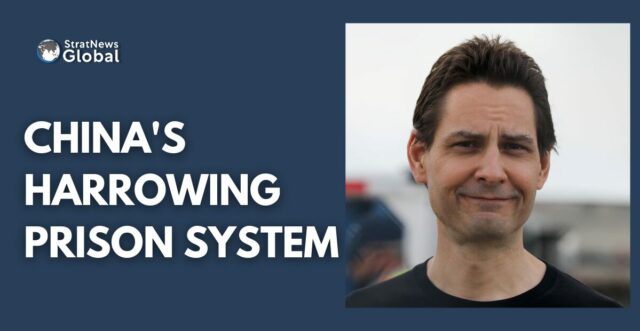Michael Kovrig, a Canadian man detained in China for over 1,000 days, has revealed details of the psychological torture he endured, including months in solitary confinement and lengthy daily interrogations. Speaking in his first extensive interview since his release in 2021, Kovrig shared his harrowing experience with the Canadian Broadcasting Corporation (CBC) on Monday.
Solitary Confinement and Daily Interrogations
Kovrig, a former diplomat and advisor with a think tank, was arrested in December 2018 alongside fellow Canadian Michael Spavor, shortly after the detention of Huawei executive Meng Wanzhou in Canada on a US warrant. Both men were accused of espionage by Chinese authorities.
During his imprisonment, Kovrig said he spent nearly six months in solitary confinement, far exceeding the 15-day limit outlined in United Nations guidelines. He described the experience as “psychological torture,” explaining that the lights in his cell were kept on 24 hours a day, and he was interrogated for up to nine hours daily.
“It was the most grueling, painful thing I’ve ever been through,” Kovrig said. He detailed how Chinese authorities tried to “bully, torment, and terrorise” him into accepting a false narrative of his supposed crimes. At one point, his food rations were reduced to just three bowls of rice a day.
Personal Toll and Reuniting with His Daughter
Kovrig missed critical moments in his personal life during his detention, including the birth of his daughter. He met her for the first time when she was two-and-a-half years old. His partner had played recordings of his voice and shown their daughter pictures of him during his imprisonment, so she would recognise him upon their reunion. Kovrig described the emotional moment when they finally met, recalling the joy of pushing his daughter on a swing.
“I’ll never forget that sense of wonder, of everything being new and wonderful again,” Kovrig said, reflecting on the moment.
Tense Relations Between Canada and China
Kovrig and Spavor were released in September 2021, the same day that Meng Wanzhou was allowed to return to China after the US dropped its extradition request. The timing of their release led to widespread speculation that the two Canadians had been detained in retaliation for Meng’s arrest, a claim China has denied.
In response to Kovrig’s interview, the Chinese embassy in Ottawa reiterated that Kovrig and Spavor had been detained on suspicion of activities threatening China’s national security. It stated that their cases were handled according to the law.
Relations between Canada and China remain strained. Recently, China initiated an anti-dumping investigation into Canadian rapeseed imports, shortly after Canada imposed 100% tariffs on Chinese-made electric vehicles.
(with inputs from Reuters)
Research Associate at StratNewsGlobal, A keen observer of #China and Foreign Affairs. Writer, Weibo Trends, Analyst.
Twitter: @resham_sng





